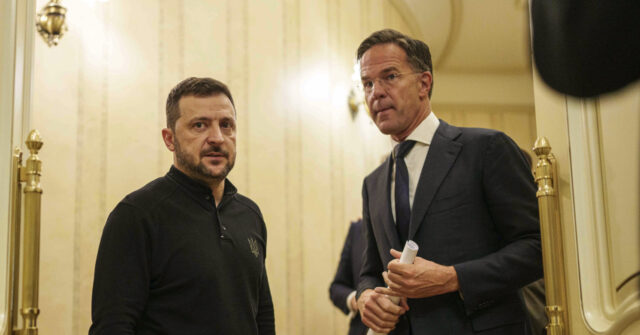Ukrainian President Volodymyr Zelenskyy’s recent statements have brought the issue of North Korea’s involvement in the ongoing conflict in Ukraine to the forefront. During a meeting in Brussels with European Union leaders and NATO defense ministers, Zelenskyy revealed that Ukrainian intelligence suggests 10,000 North Korean troops are being prepared to support Russian forces, a move he characterized as potentially escalating the conflict to a world war. This claim adds a new layer of complexity to the war, which has already drawn significant international attention and resources since Russia’s invasion of Ukraine over two and a half years ago. While U.S. Deputy Secretary of State Kurt Campbell acknowledged concerns regarding North Korea’s support for Russia, he noted that the intelligence surrounding troop deployments remains unconfirmed. NATO Secretary-General Mark Rutte’s comments further emphasized the uncertainty, stating there is no evidence of North Korean soldiers currently engaged in combat but acknowledging that North Korea is providing substantial military assistance to Russia.
As discussions progressed, Zelenskyy shared his “victory plan” aimed at strengthening Ukraine’s position and potentially expediting an end to the conflict. This five-point plan included crucial requests for Ukraine to join NATO and allowing the use of Western-supplied long-range missiles for military targets deep within Russia. Zelenskyy made an impassioned appeal at NATO headquarters, professing Ukraine’s dedication to defending shared European values against Russia, which he termed as the biggest threat to European and global peace. The Ukrainian president’s assertion that the conflict could be resolved within a year hinged on the support of Western allies, underscoring Ukraine’s reliance on international partners to bolster its defense efforts against Russian aggression.
EU leaders responded positively to Zelenskyy’s appeal, advocating for an acceleration of military support to Ukraine, particularly in the realm of air defense systems and ammunition. They reinforced their stance that Russia must not succeed in its objectives, indicating a collective determination to back Ukraine in its defense. Zelenskyy’s discussions also included confidential aspects of the plan that were only disclosed to major allies like the United States. Meanwhile, contrasting opinions emerged from leaders like Hungarian Prime Minister Viktor Orbán, who expressed alarm at the proposed measures and called for negotiations with Russia, reflecting divergent views within the EU regarding Russia and Ukraine.
In the context of the current military situation, Zelenskyy urged NATO members to be decisive in their support, stressing the urgency needed in military aid as Ukrainian forces face pressure from better-equipped Russian troops, particularly in the eastern Donetsk region. The struggle for Ukraine is compounded by frustrations regarding the slow pace of aid from Western nations, with leaders like Lithuanian President Gitanas Nauseda criticizing the hesitance of allies in their decision-making processes concerning military support. The ongoing debates and dynamics within NATO and the EU highlight the broader geopolitical ramifications of the conflict and the need for a more unified approach to supporting Ukraine against Russian advances.
While NATO member states remain committed to Ukraine’s eventual membership, the reality is that significant political uncertainties linger, especially with a U.S. presidential election on the horizon. Many European leaders expect that progress on Ukraine’s NATO aspirations may stall until a new administration takes office. The ongoing situation has produced a cautious attitude within NATO about deepening commitments while simultaneously attempting to avoid escalation that could lead to a broader conflict with nuclear-armed Russia. France and Germany’s leadership in advocating for restraint reflects concerns about entanglement in the war; they have maintained opposition to granting Ukraine NATO membership until the conflict has concluded.
Zelenskyy’s strategy includes not only a call for increased military aid but also an offensive posture aimed at making Russian citizens comprehend the fallout of their government’s actions through war. He highlighted the necessity for Ukrainian forces to keep fighting while simultaneously shifting the war’s focus towards Russia, suggesting that an increased understanding of the war’s consequences among ordinary Russians could shift public sentiment away from support for President Putin. His appeal for unity among EU leaders is indicative of a broader campaign to enhance relationships with allied nations and push for decisive action against the Russian aggression threatening Ukraine and Europe as a whole. As the war continues unabated, Zelenskyy’s determination to secure Ukraine’s future as a NATO member and to garner support for the fight against Russia remains a cornerstone of his leadership and diplomatic efforts on the international stage.

